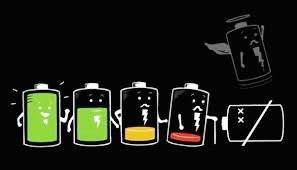Tech Overhaul: An Ode to Faster Memories
Umesh Patel, Arastu Systems
December 14, 2015
If you want to know a person’s ‘true’ side, give him or her a ‘slow’ computing device! This might sound like a joke but most people assume a ‘demonic’ avatar when they aren't able to view videos, emails or play games on their hand-held gadgets such as phones or tablets at the desired speed. You could find them clenching their fists (this includes me), grinding their teeth and pulling their hair apart when they see ‘Loading XYZ…’ flash on their computer screens. Patience is now a lost virtue and this gives an impetus to the ‘perhaps’ endless quest for faster computing solutions.

Technology has spread its magic and cast a spell on one and all. Looking at the rush to own a ‘smartphone’ amongst every stratum of life makes us conclude that now ‘food’ maybe a lower priority but being ‘in touch’ seems a must-have. The cell-phone or as a matter of fact portable communication devices such as laptops, tablets and phones have swept off everyone by their feet, this market is one that shall never witness a lull. There are a millions of ‘APPS’ hosted by ‘APP STORE’ and many of them have become an inseparable part of our lives. Shopping for that date, looking up for recipes, quotes, health and nutrition advices, non-stop bantering over social media, editing and taking pictures, watching one’s favorite movies or hearing soothing songs, the world is at our feet (or should I say fingers!), if we have a ‘smartphone’. The extensive usage and advantages of high end computing devices is rising phenomenally owing to the vast array of services and solutions that it provides on one’s finger tips.
High end application processors, high resolution displays look for high density and high bandwidth memories to complement them. Amongst the top 10 ‘Reasons - Why your computer is slow’ one of the prime is: inadequate RAM (Random Access Memory) and it is that part of computer storage that does the temporary storing and thinking. If you see that the video that you clicked on five minutes ago hasn’t started yet, you could blame it on inadequate RAM. To store a high resolution video (everyone wants 4K now!), one needs to have adequate RAM available on their devices since the video that we see live is actually temporarily saved in the RAM, high resolution videos hence require a high bandwidth and high density RAM. Also if the processor is fast while the memory is not able to ‘cope’ effectively, the faster processor is a ‘waste’, just like wading through maddening traffic on your way home only to find that you have left your house keys in your office desk. Now that we have understood that high resolution videos, high speed processors and high bandwidth memories go hand in hand, we must also realize that all of these are huge sources of power drain. All of us have had those ‘annoying’ situations when our phone battery drained just when we had to ‘make a call’ or actually experienced the ‘Energy carried by Electrons’ burning our hands and/or ears. Thankfully there is hope for all of us owing to extensive research in bringing down the power requirements of portable computing devices.

Down Memory Lane one would hear the terms LPDDR3 (Low Power Double Data Rate RAM Generation 3) and LPDDR4 (Low Power Double Data Rate RAM Generation 4, that supersedes the former owing to Higher data rate and lower power consumption it offers)……As one walks further, one would also hear about terms such as ‘memory wall’ and ‘memory contention’. Although Moore’s Law governs the phenomenal rise in processor performance, in the case of memory it hits a wall. Necessity is the Mother of all invention, and the need of the hour is to continue digging the goldmine for faster and better memories. Rays of hope have surfaced on the technology horizon, they are coined as ”three dimensional memories”. Hybrid Memory Cube (HMC), High Bandwidth Memory (HBM) and DDR4-3D Stacking (DDR4-3DS). While these new technologies are vying to grab eyeballs by proving fit enough to meet the vivid requirements of the consumer electronics market - price and stability for instance - it looks like the steadier and proven technologies are here to stay.
About the author:
Umesh is the Founder and CEO of Arastu Systems, a company that specializes in providing IP products & related services. Umesh is a well-grounded person and likes to take a bird’s-eye view of any situation, be it engineering, people or society; then turn aside to reason in before weighing in too soon on right or wrong. With more than 20 years of experience, Umesh has contributed to many semiconductor start-ups where he engineered and managed various semiconductor SOC/EDA and ASIC/FPGA product development.
Related Semiconductor IP
- LPDDR3 IP solution
- LPDDR3 Synthesizable Transactor
- LPDDR3 DFI Synthesizable Transactor
- LPDDR3 Memory Model
- LPDDR3 DFI Verification IP
Related White Papers
- An efficient way of loading data packets and checking data integrity of memories in SoC verification environment
- An introduction to ARM Cortex-M0 DesignStart
- Time Sensitive Networking: An Introduction to TSN
- How to manage changing IP in an evolving SoC design
Latest White Papers
- Breaking the Memory Bandwidth Boundary. GDDR7 IP Design Challenges & Solutions
- Automating NoC Design to Tackle Rising SoC Complexity
- Memory Prefetching Evaluation of Scientific Applications on a Modern HPC Arm-Based Processor
- Nine Compelling Reasons Why Menta eFPGA Is Essential for Achieving True Crypto Agility in Your ASIC or SoC
- CSR Management: Life Beyond Spreadsheets